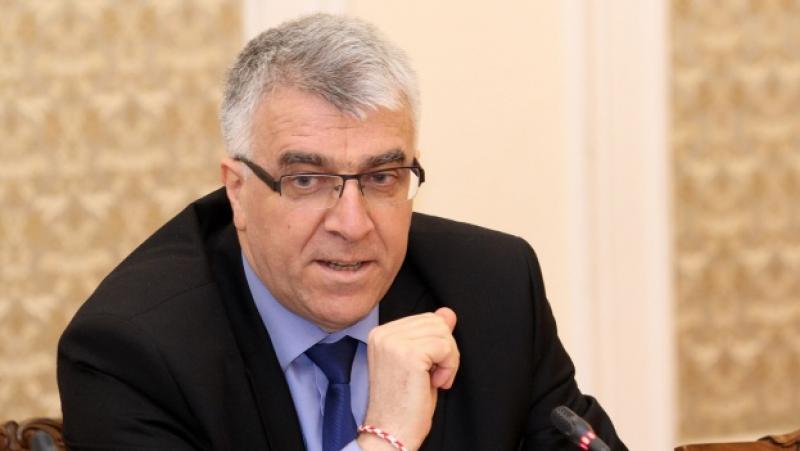/ world today news/ “The failure of the request to take a loan worth 8 bln. euro by the government arouses very sharp objections. The correct policy of any government is to work in parallel with the relevant committees in the parliament and the parliamentary groups, and in no case to put the people’s representation before a fait accompli”.
This was stated in the program “The Week” on Darik Radio, the People’s Representative from BSP LEFT BULGARIA prof. Rumen Gechev. He recalled that on February 6 this year, the Minister of Finance signed a contract for 8 billion. euro new external debt with dealers to realize this loan. According to him, the number that is included in the contract is clearly shown, and this was never discussed in the parliament. The MP added that the National Assembly did not give carte blanche to the government to negotiate for 8 billion. “The budget law says that we allow the government to negotiate with dealers, to conclude preliminary agreements, but only on the basis of what the 2015 budget proposes,” explained the economist.
Rumen Gechev commented that Bulgaria is a record holder, in the best sense of the word, in terms of external debt, and in his words, now suddenly the government is declaring that another 8 billion is needed. euro. “This has excited the financial world and we will be offered higher interest rates,” Gechev also said. He was categorical that the world practice is categorical – the approval of state debt is done only by the parliament and for a period of one year. The deputy added that if the government wants to pay off the foreign debt in a year or two – instead of ten, it should recall an identical case in Romania during the time of Ceaușescu. He was adamant that when deficits are financed, such a large amount is also not needed. According to him, there is a trap of the rulers here – they do not mention the internal debt.
Gechev stated that the managers included in the loan agreement that the interest rate could reach 10%, which is too high. “We were provided with 200 pages of legal texts without a single number, at what interest rate the government expects to conclude the contract, for what period”, recalled the national representative. He announced that the documents say that the repayment period is up to 30 years, but it is not known exactly how much and the interest rates in this situation are different. “The pressure on the Bulgarian economy will be different. This is one of the most scandalous features of the proposal”, Rumen Gechev was categorical.
The deputy believes that the Bulgarian parliament should not experiment with the state debt and BSP LEFT BULGARIA wants the government to withdraw this proposal. “If they try to push this proposal through the parliament, we will immediately notify the Constitutional Court, as this would be a gross violation of the Constitution,” said Gechev categorically. “It is really insulting that the government did not bother to tell the experts from the opposition parties about its intentions,” said the socialist.
Rumen Gechev also explained that he approves the rehabilitation as a practice, but not the social consequences of the loan for him. “It turns out that 7 million Bulgarians will have to pay for the rehabilitation of several thousand apartments”, he was categorical. The socialist expressed his concern that the government is considering the Bulgarian Development Bank (BDB), which has a credit potential of about 600 million. BGN and taking now 1 bln. loan, it begins to deal with rehabilitation instead of stimulating small and medium-sized enterprises. “Insulation materials are produced abroad – and here we come to a paradox. BBR will be the only state bank that will stimulate the import of materials. We take 1 bln. loan so that the rulers present themselves well in the local elections, social tension is created and instead of BBR stimulating domestic production, it will do it with imports”, commented the socialist.
#request #billion #BGN #loan #government #insolvent
1. As a member of the parliament, what is your take on the government’s decision to take a loan worth 8 billion BGN without first seeking approval from the relevant committees and parliamentary groups? How does this impact the trust between the executive and legislative branches?
2. In your opinion, was the contract for the 8 billion BGN loan negotiated in good faith? Why or why not? What safeguards should be in place to prevent future occurrences?
3. As a member of the left-leaning political party BSP LEFT BULGARIA, do you believe that the government is prioritizing short-term gains over long-term economic stability by taking on such a large loan? If so, what is your recommended course of action?
4. The proposed use of the Bulgarian Development Bank for this loan raises concerns about its limited credit potential. How should the government strike a balance between stimulating domestic production and addressing pressing social issues like apartment rehabilitation?
5. Critics argue that the government is creating social tension by pushing for this loan. What measures should be taken to ensure that the loan does not disproportionately impact ordinary citizens while still addressing the country’s infrastructure needs?


